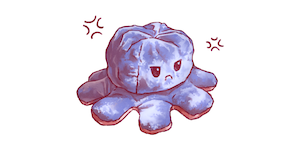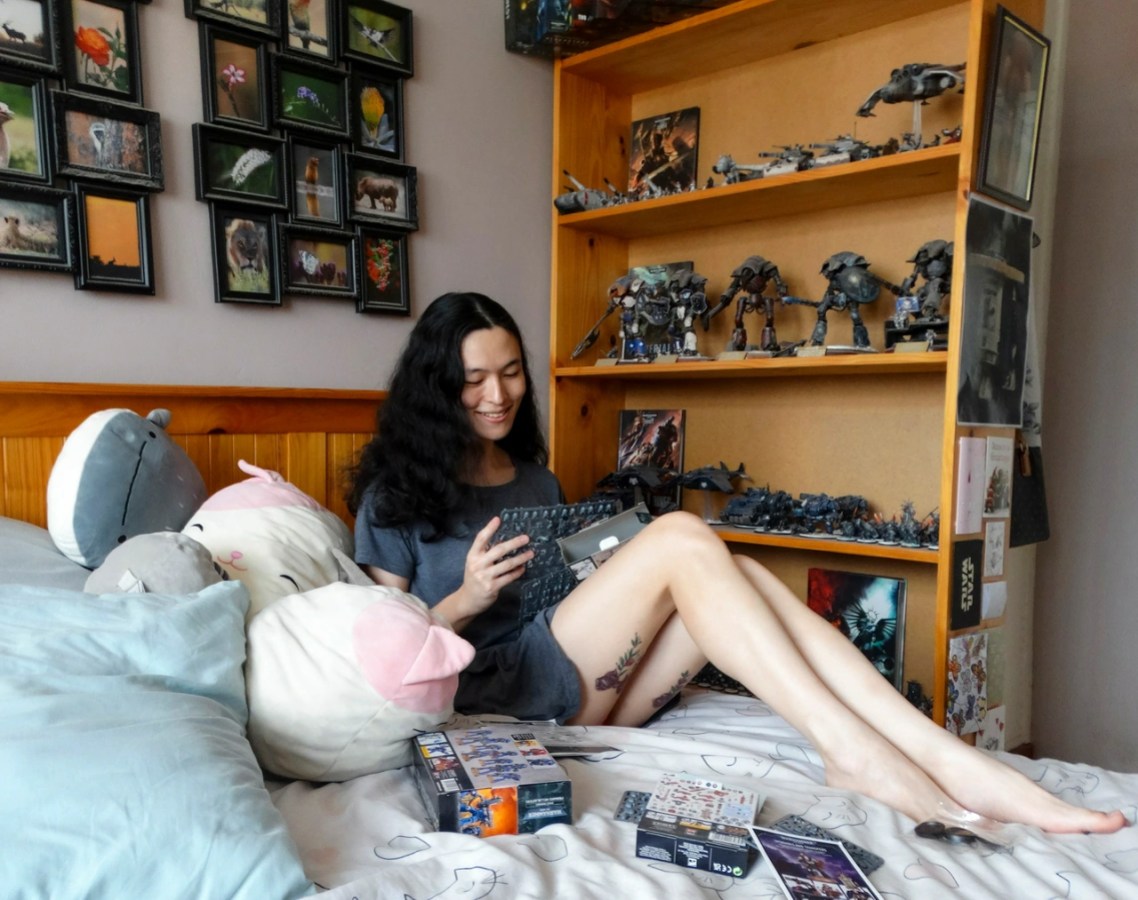Society: hard and cold. Plush toys: soft and warm.
That could be the entire thesis, but I think the topic deserves more detail.
Many of us parted with (or were separated from…) our plush toys a long time ago. I’m here to explain why now’s a good time to reunite with them.
Soft comforts, soft hearts

Among those of us who ended our soft toy “phase,” I can’t think of many who did it willingly. Their removal is typical during a masculine upbringing, but even feminine children get told there’s a time to let go. I think it’s worth thinking about whether this social convention is actually useful. You know. The thing where at an arbitrary and often gendered age, people remove comfort objects from their children.
And that’s what this article is about. Comfort objects.
Soft, warm things like blankets, plushies, and even pets (reptiles exempted from ‘warm’ but still beloved) represent comfort and stability. They’re often the very first thing that belongs to us. Besides the sense of ownership, they were also our foray into inscribing meaning onto objects. Our caregivers couldn’t always be there, but inanimate objects aren’t bound by those rules. It’s no surprise we sought shelter from the oft-overwhelming world in objects of safety. What’s surprising to me is that our caregivers sometimes took them away.
Well, the world is still overwhelming and scary

I don’t have to tell you why the world is overwhelming and frightening. You have a list of answers for that already. That stress burden is doubled if you’re neurodivergent in a world that prizes “normalcy.” Sure, I have eating disorder this and anxiety that. There’s a name for all of it, but I don’t live to the sound of my mental distress. Mental distress filters into my otherwise vibrant and lovely life, destabilizing it. That’s my daily life.
Living now can be scarier than when I was a kid. I’m not as afraid of zombies, and I’m far from my hometown, which is great. But bills, climate change, and “the future” take up a lot of my bandwidth. Our upbringings have a way of replacing joyful childhood coping measures with buzzwords and diagnoses. I don’t begrudge diagnoses and targeted treatment, but some things don’t have a category. I feel a bit crappy right now isn’t something I address medically. But I can reach for a plush cat and feel its softness. Just like when I was a kid.
Plushies have a long history with neurodivergent people

Daily living can be especially tough for those of us who are…neuro-noncompliant. We get exhausted more easily. Healthcare helps, but it’s hard to access or designed to make us more “normal.” What about being comfortable over being normal? It’s not surprising that some of us privately return to soft comfort objects. They’re non-judgemental, silent, and wholly ours. They bring us softness after being destabilized by a hard day.
The relationship between comfort objects and neurodivergence goes a lot further than plush toys, too. Neurodivergent kids get incredibly attached to their toys for the same reason as other kids. But they often feel the world’s sensations more intensely, and the attachment becomes a matter of sanity, rather than just comfort. I had the late realization that neurodivergence never left me as an adult. Which meant that dispensing with my comfort objects was an absurd idea that deprived me of stability for no gain.
Today, our home has an array of plush toys in different sizes and textures for every mood. My girlfriend and I have flopped into the so-called cuddle pile for impromptu autumn naps. A cheerful plush cat sits on my lap while I write. It’s ideal for my stimming habits — I can give it a smoosh or a scritch when my mind wanders, rather than tab out to social media.
It’s also the best time to take up plushies

Here’s a list of reasons why that’s the case.
- Online shopping has opened up an unrivaled variety of potential friends. Pre-loved from a second-hand store or eBay? Handmade custom pieces from specialized stores? Merchandise from your favorite fandom? Commemorative pieces for wildlife conservation? There’s one for all of your interests.
- The growing awareness of mental wellness and neurodivergence has made it more socially acceptable than ever to be an adult who loves plush toys. Mine accompany me on flights and romantic sleepovers with equal frequency. There are even variants made for neurodivergent adults, like the new generation of weighted plushies.
- They’re a litmus test for visitors. My girlfriend and I don’t date someone unless they grasp our love for plush toys. We’ve found that people who don’t understand our basic comfort needs won’t be ideal to keep around.
- Many of us were parted from our childhood plush toys on traumatic terms. Strange as it sounds, getting a plush in adulthood can be a growth moment. It signals a new beginning for finding comfort on your terms, or the start of a collection for your home.
Now it would be frankly hypocritical of me to make this call to action without paying the plush tax. Here’s the author with squishy cats of many sizes and a very gormless whale shark. The whale shark’s name is Sushi.




I love the little octopus drawing that’s accompanying this! He’s the exact one my friend and i each won at the fair last year and live at work with us!
We work in a library, and mine has an altered conference name tag identifying him as Mr Twaintacles 🐙
The little octopus was Kayla the editor’s idea! It’s adorable
Plushies are great for friends in the hospital or going through some other kind of tough time, too!
Does anyone know any ethical plushie companies, or a way to vet the source of plushies? That’s something I’ve always wondered about — I hate the idea of this source of comfort being made a miserable factory with child labor or other exploitative labor, ruining a child’s or an adult’s life somewhere…
The closest to ‘ethical’ plushies I’ve found is sourcing them from smaller businesses in your country. One of my favourite creators is a small South African company that makes weighted plushies for neurodivergent people and their caregivers. Being a small operation that makes specialised products, I tend to assume their labour practices are a bit better.
There’s also the hand-made route – skilled friends, community members, or small Etsy operations can create completely unique toys that you have control over. You can often reach out and contact those people directly to discuss what you need. Small Etsy-type handmade operations will often offer customisation options too – just be sure to look up how to vet Etsy sellers and creators to sort the mass manufactured drop-shopping from real handmade stuff.